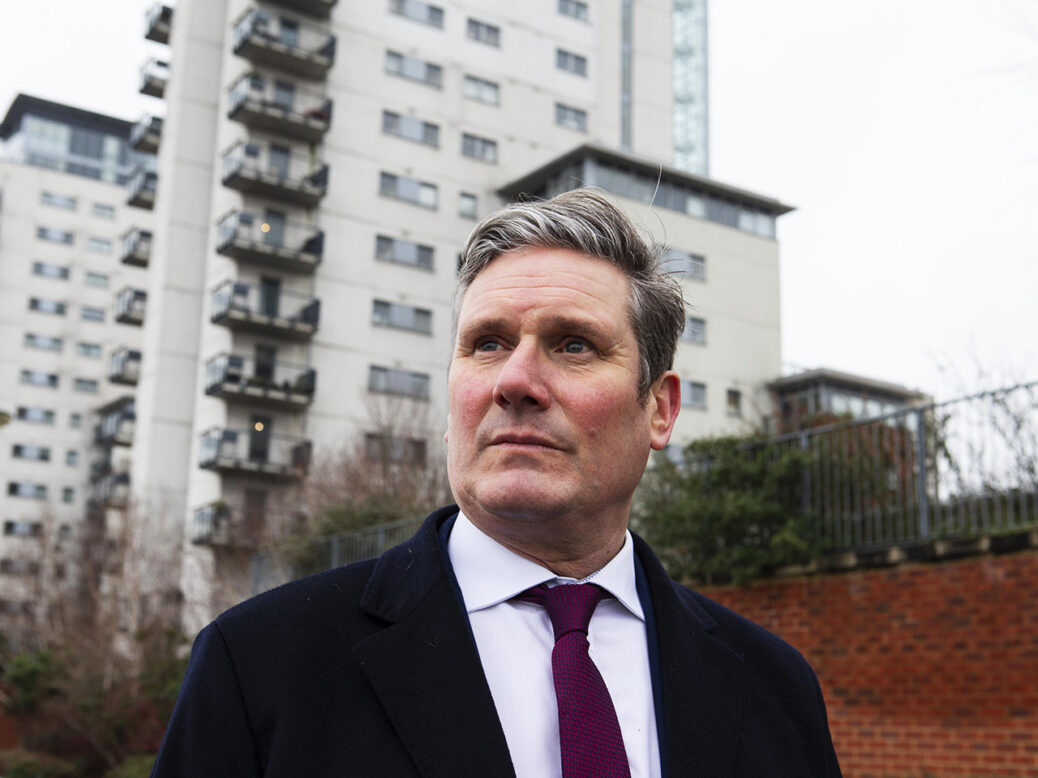
On one of the most important issues facing the nation, British politics seems to be limbo. Among policymakers, the media and the younger generations of activists, housing is emerging as possibly the single most vital challenge to address.
That doesn’t mean everyone agrees on how to solve the crisis – and there remain those on both the left and the right who try to play it down, or even deny it outright. But there is nonetheless at least growing recognition that something has gone badly wrong.
At the level of elected politics, on the other hand, housing is the dog that doesn’t bark. The Conservatives seem content to have abandoned any serious effort towards major planning reform, despite the catastrophic long-term effects this could have on their vote. And now Keir Starmer has unveiled the five “national missions” that he hopes will determine the priorities of a Labour government. And lo, housing is nowhere to be seen.
This is not to say any of the items on his list are not important. Few people (at least among those who might vote Labour) are going to object to a Prime Minister focusing on the economy, the NHS, crime, climate change and education. But it does suggest that Labour is no readier than the Tories to face up to one of the biggest structural problems afflicting the United Kingdom.
You don’t need to completely buy into the “Housing Theory of Everything” to recognise that the spiralling cost of being adequately housed exacerbates lots of other issues too – not least the cost-of-living crisis and its consequences, such as demands for higher public sector pay. The vast share of people’s post-tax income lost to housing costs also hurts the broader economy, because those living in London and other overpriced areas have far less money to spend, which hurts businesses.
These secondary effects should not eclipse the actual, human realities of the crisis. In the rental sector, would-be tenants are forced into what the BBC describes as an “exhausting, costly, miserable” scramble for somewhere to live. The fierce competition makes them beggars who can’t be choosers – even if they can theoretically appeal to regulators about their legal rights, it is very difficult to assert these rights if you have nowhere better to go.
Meanwhile would-be homeowners are buying later than they would like and often accepting painful trade-offs like long commutes and smaller homes to find somewhere they can afford. Those who bought recently are the ones worst affected by the recent interest rate rises, locking in higher mortgage costs for years to come as their terms come up for renegotiation.
Labour might think this crisis benefits the party electorally. Acquiring families and assets has tended historically to affect people’s voting habits, pushing them more towards the Conservatives as they age. If the housing market doesn’t allow that to happen, it is the Tories who will suffer. Labour might also be tempted by eye-catching palliative measures, such as rent controls or other price-fixed housing options, that could yield short-term electoral dividends.
But that won’t fix the underlying problem – and the problem, as is becoming increasingly clear, is causing widespread misery and holding back the UK economy. Whether Labour are ready to admit it or not, there is no escaping the simple fact that there is a vast and growing gap between the housing market the British people deserve – good choices, better prices – and the housing stock we currently have to supply it. If the next Labour government chooses to preside over this problem without fixing it, then sooner or later they too will pay the political price.
Read more:
The end of the housing delusion
How to crash the housing market
Could Jeremy Corbyn win as an independent?





